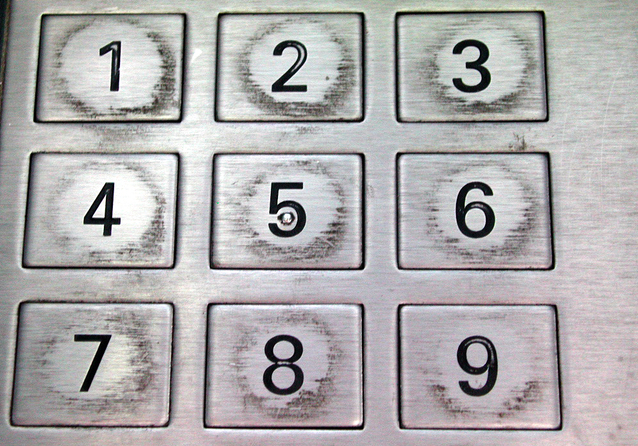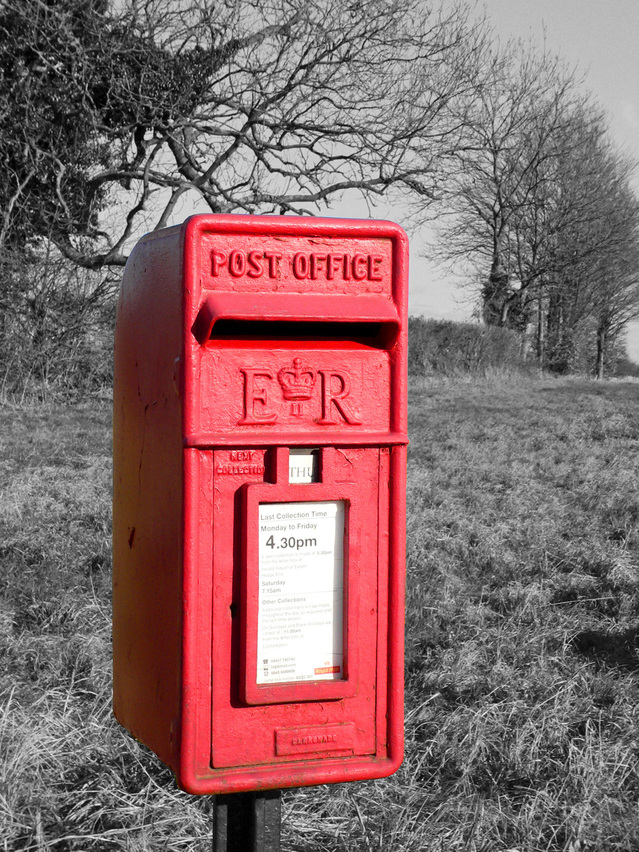If you think consumer credit score is complicated, wait until you start a business! You’ll find that it is much more difficult to prop up your company credit score than your own personal credit score. The UK government assigns individual and company credit scores in order to maintain a strict rule that determines a person’s, or in this case, a company’s creditworthiness. This is done so that people will know whether they can be confident in doing business with you; after all no one wants to deal with shady people, much less companies with questionable activities, services and/or history, now do they?
A company credit score is utilized in the same way personal credit scores are used. When you apply for a business credit card or a small business loan, the financial institution that you’re applying to will look into your company credit score along with the terms of the loan and interest rates to see if your business is eligible. Similar to personal credit scores, the higher your business credit scores are, the more chances you’ll have on getting the best interest rates and loan terms. The only difference between a personal credit score and a company credit score is the way they are rated. Individual credit scores are rated between 300 – 850, while business credit scores typically range from 0 – 100.
Table of Contents
- What is a Company Credit Score?
- Breaking Down Business Credit Score
- Business Credit Score in Action
- How to Check your Business Credit Score
- Dun & Bradstreet
- Experian
- Equifax
- CredtPassport
- Creditsafe
- Are There Any Free Options for Checking a Business Credit Score?
- What Information Will you Need to Check your Score?
- Which Option Should you Choose?
- How Will a Poor Credit Score Affect My Business?
- How Can I Improve My Business Credit Score?
- How Long Will it Take to Improve My Business Credit Score?
- How Do Bad Credit Business Loans Work?
What Is a Company Credit Score?
A company credit score is a standard rating system that assigns businesses a certain number that indicates how trustworthy a company is in terms of receiving a loan, or whether they are a good potential as a business customer. There are government-accredited credit scoring firms in the UK that monitor and calculate business credit scores (sometimes referred to as commercial credit scores) since the 1990s.
They calculate a company’s credit score based on their credit obligations and repayment histories with lenders and suppliers; any negative legal disputes or settlements such as tax liens, judgments, or bankruptcies; the number of years the company has been in business, the type and size of your business; and how well they perform in terms of repayments to the loans they’ve made compared to other firms in their category or business market niche.
Breaking Down Business Credit Score
It’s normal for companies to apply for a loan to buy office and other business-related equipment to improve productivity, purchase property to establish a branch, warehouse or other things needed to sustain business operations, or expand business outreach. In fact, businesses often do this and when they do, they go to a bank, a lender or a financial institution to borrow money, and the first thing that the lender will do is to review the borrower’s company credit score.
The lender will also review the annual revenue of the company, its assets and liabilities, as well as the collateral value of the equipment/real estate property/other materials the company desired to procure with the loaned money they’ll receive. The lender’s discretion is different when it comes to small business enterprises (SMEs). Lenders tend to require SMEs to submit theirs as well as their founder’s/business owner’s credit scores, because small business owners often have their personal fiances linked to their business fianances.
The 5 major business credit scoring companies include:
- Equifax
- Experian
- Dun and Bradstreet
- Credit Passport
- Creditsafe
Note: FICO (Fair Isaac Corporation) does not operate in the UK because the government did not enact a law for universal credit scoring system, and instead preferred to have individual credit reference agencies (CRA).
These CRAs have their own unique scoring method, although they ultimately come to the same conclusion, which is to determine whether a firm has good or bad credit score. But the specifics of the credit scoring method is not all that important and as long as the company pays its bills on time, stays out of legal trouble, and doesn’t incur too much debt, then it should have an ideal company credit score.
Business Credit Score in Action
Suppose Company A received a call from Company B stating their interest in being a client of Company A, but Company A was considering the risks of this potential client and whether or not they would pay their invoices in full and on time, what would be their best course of action? Obviously, no business would allow themselves to devote hundreds of hours worth of work for a client who may not pay of their services. In order to ascertain Company B’s trustworthiness, Company A will hire a CRA and ask them to run a company credit score check on Company B to see if they have a good payment history to their suppliers.
Company A can even have the option to hire the CRA on a longterm basis to monitor Company B’s credit score on their behalf to ensure that Company B will not default on its outstanding invoice payments. Should there comes a time when Company B’s business credit score will drop due to negative business practices, then Company A can also plan a strategy to avoid financial loses by either requiring Company B to pay all invoices in advance, or discontinuing all business transactions with them until they straighten up.
How to Check your Business Credit Score
The UK government thought it necessary for multiple CRAs to exist in the country, that way all business credit scores are rated with fairness and it also gives lenders the option to compare business credit scores across the board. The most notable CRAs for companies in the UK include:
Dun & Bradstreet
Dun & Bradstreet is UK’s number 1 credit reference agency and they offer various services to help you monitor and manage your company credit score. They have a basic CreditSignal plan (free), a £12 a month CreditSignal Plus plan, and the more comprehensive CreditMonitor Plan, which is a £31 a month subscription. Each of these plans have different levels of degree in monitoring your business credit scores over certain periods of time, and the best plans has an added bonus such as dark web monitoring, industry benchmarking and notifications about damaging business events. It’s very easy to setup an account with Dun & Bradstreet and all you have to do is visit their website and sign up to get started.
Experian
Another top tier CRA is called Experian, however, unlike Dun & Bradstreet their basic plan only offers to monitor your business credit score once for a fixed fee. It works like this: for example, you want to know your company credit score from the time you’ve incorporated up to the present, then you pay a one-time fee of £31.70 in order for them to give you a CreditScore Report of your business. Later on you can choose to use their services again to monitor your new business credit score after a few months or years had passed since your last inquiry. One tier higher is the ProfilePlus Report, which cost £39.64 one-time fee that will include business credit score, detailed trade line data, inquiries and UCC details.
Then they have 2 different types of annual business credit score monitoring and the first one is called Business Credit Advantage, which is a £150 annual subscription plan that will give you daily monitoring of your company credit score, unlimited credit report/scores, alerts on inquiries, notification on key changes, and a 3-month continous score trends/tracking. The second one is the Business CreditScore Pro, which is a £1,186.50 annual subscription plan that allows you to view multiple records, access to business public records, business credit scores, payment summary trends, and check up to 30 companies per month!
Equifax
Equifax is a lot like Experian and they allow you to order a single business credit report done via their website, however, you may want to inquire at their customer service first to learn about the pricing prior to purchasing one. The credit report may include comprehensive information such as;
- Company profile
- Credit summary
- Public records details
- Equifax business risk scores
- Alternate business names and more
Their credit report about your business also includes a unique sort of “fail safe” Business Failure Score, which in essence is just a statistical assessment on how likely your business might fail because of a certain formal or informal bankruptcy in the next 12 months. It is a fail safe because it warns and prepares you for what’s coming and helps you come up with one or more business strategies to mitigate it, and even possibly avert it.
Credit Passport
Not all credit reference agency in the UK offer paid services, it’s nice to know that business owners can go to companies like Credit Passport to get information about their company credit score without having to spend a single penny for it. This platform uses bank data to show how the financial system views you. The credit score checks of Credit Passport is considered a soft inquiry and most likely will not hurt a company’s over all credit profile. The Financial Conduct Authority (FCA) authorises and regulates all reports generated by Credit Passport, and it is widely known in UK that their credit rating system is one of the easiest to understand.
Credit Passport also offers a paid subscription plan besides their free basic business credit score inquiry, which is designed to help business owners improve their credit profile. Credit Passport has 3 types of plans, which includes:
- Basic (free)
- Plus (£20)
- Premium (coming soon)
They also provide a pre-COVID-19 crisis credit report for your business to show lenders that you had a good credit score and that the pandemic is not a reason for them not to trust you.
Creditsafe
Creditsafe is one of the best CRA companies in the UK (it also has offices in 10 other countries across the globe). Their predictive credit scoring system is top of the line and, in fact, insurance companies use their system for their multinational, comprehensive reports.
You can request a free credit report from them if you’re one of the board of directors or the company founder. Your business credit report will include:
- Business verification
- Your credit score and maximum recommended credit limits
- Key risk indicators (such as County Court Judgments)
- Company information (such as Directors and shareholders)
- Financial performance
Creditsafe is able to make queries on all types of businesses from micro-businesses to SMEs to enterprise organisations. Their queries are also considered soft inquiry thus the name, “safe.” You can also request a customised solution for your business.
Each of these CRAs have their own way of calculating and displaying their scores. Lenders will obviously use different CRAs to determine the creditworthiness of their B2B clients, so you may want to check your own company credit score before they do just to ascertain your credit profile and make sure that it’s at a good standing.
Are There Any Free Options for Checking a Business Credit Score?
Yes, there are a few companies that offer business credit scoring services for free; however, the tradeoff is that their credit report about your business is a less than comprehensive one at best. Still, you’ll get the added benefit of not spending a dime for it and it won’t hurt your credit score when they’ll make an inquiry, because it’s a soft inquiry.
Below are the 3 places where you can get a company credit score check for free:
- Dun & Bradstreet’s basic plan called CreditSignal – we’ve already talked about this free service from Dun & Bradstreet’s basic business credit score plan that’s offered to any legal business operating in the UK. The only setback of this free company credit score inquiry is that it only last for 14 days, which may not be a subtantial document to submit to your lenders if you’re on the verge of borrowing money for your business.
- Nav – this company is like an all-in-one service that allows you to use Dun & Bradstreet, Experian and Equifax business credit reports and scores. Your business credit report will include payment history, age of credit history, debt and debt usage, industry risk, and company size.
- Tillful – this is actually not a CRA but rather a mobile app that any business owner or board of director can use (or even ordinary people or what have you) to view a certain company’s credit score and other credit report. Tillful is available on iOS and Android devices and you can use it to monitor your credit score and your business financial history.
What Information Will you Need to Check your Score?
The D&B CreditSignal and Nav programs will require a couple of things from you in order to give you access to your company credit score, which includes your business name, your ZIP code and your email address. They’ll also ask for your date of birth, your phone number and your Social Security number to prove your identity. Plus they’ll also ask you to answer some security questions that are related to your loan history, employment history, or the number of addresses you’ve had over the years.
Which Option Should you Choose?
If you’re only looking to find out the general credit health of your business, then you should pick any of the basic free offers of the CRAs we’ve mentioned above. Just keep in mind though that these free plans will not be as detailed as the credit reports you’ll receive from those more advanced paid subscription plans.
If you’re keen on learning about the specifics and details of your business credit profile (because you’re preparing to get a loan or for whatever else other reasons), then you should choose to get a paid subscription plan from CRAs such as Dun & Bradstreet or Experian.
It pays to know that you have a company credit score that’s in good standing and your company is eligible to become a B2B (business to business) client with a larger firm that offers credit terms to businesses that have good credit scores. Don’t take things for granted. You may think that your business credit score is unimportant now, but somewhere along the line you’ll find out how important it is when you want to take out a business loan or work with vendors who extend credit.
If you’ve got some spare cash in your business bank account, then spend a few of those on monitoring your credit profile just to make sure you have a good business credit score.
You may also be interested to read: How to Hire Qualified Workers the Legal Way
How Will a Poor Credit Score Affect My Business?
Perhaps the worst thing that you could have in your business is a bad company credit score. It basically makes things difficult and you will find banks and financial institutions – even private lenders shying away from your loan application. Chances are lenders will offer you a reduced loan amount with a much higher interest rates, or completely reject your loan application all together. Bad business credit scores will definitely hurt your business, which is why you need to monitor your credit score continuosly and jump into action to fix it, in case it starts to dwindle and fall.
Keep in mind that the more lenders, banks and other businesses who do inquiries into your business credit score, the more it will go down, so do your due diligence (more on that later) to keep your credit profile up. Companies with strong credit scores could benefit from higher credit limits, lower insurance premiums and better lease terms on essential equipment such as machinery or property.
How Can I Improve My Business Credit Score?
Having a clear idea now on how things can get complicated with having a poor company credit score, it’s time to talk about how you can mitigate this problem and improve on your credit score. Below you will find some of the best ways to improve your business credit profile:
- Ensure the information on file is correct – Scan all the details of your business information in your credit report and make sure it is accurate and up to date. Errors can cause you to lose credit points.
- Check your score regularly – This is to your benefit, as any changes to the information (whether or not incorrectly added to your file) can negatively affect your credit score. Remember, requesting your own credit report is considered a “soft hit” when it comes to credit checks and they don’t affect your credit score in any way.
- Pay bills and invoices on time – All late or missed payments to your invoices will defeinitely reflect on your account and CRAs will use that to mark down points on your business credit score.
- Deal with CCJs straight away – Being litigated as a business entity in the UK is normal just as it is normal in any other highly industrialized country, but not settling County Court Judgments against you will negatively affect your company credit score.
- File accounts on time – Accounts that are filed at a later time than the set deadline in Companies House will also reflect as a mark down on your credit score.
- Do not over-apply for credit – This sends a wrong signal to banks and lenders, which will lead them to believe that your company is in financial trouble. This will also affect your business credit score.
- Manage your debt responsibly – Having some debt or credit facility is good for your credit rating. It’s hard for credit rating agencies to evaluate how good you are at managing debt or credit without it.
- Check your suppliers’ credit scores – Even your business partners and suppliers’ credit score can also affect yours, so check on them from time to time to avoid getting a mark down on your business credit score.
- Manage your personal finances responsibly – Some banks and lenders take both personal and business credit scores into account when you apply for a loan, so might as well manage them efficiently.
How Long Will it Take to Improve My Business Credit Score?
It’s natural for anyone to not want to have a poor company credit score and while you may be eagerly wanting to fix it, so your credit profile wll gain a good reputation again, it will definitely not happen overnight. These things normally take between 3 – 8 months before your credit score will once again go back to a favorable height. Just do the things mentioned above to improve your score in due time.
How Do Bad Credit Business Loans Work?
Companies that have poor business credit rating will often find it difficult to get a loan, as most lenders will reject their loan application; however, they can still get a loan – one that acknowledges their low credit score. There is a thing called “bad credit business loans,” where lenders have set themselves up as a type of business that firms with bad credit scores can approach in time of a great need.
Just prepare to sign over the higher interest rates in exchange for the loan, but the good thing is that they can help you with the finances and fix your credit score.















